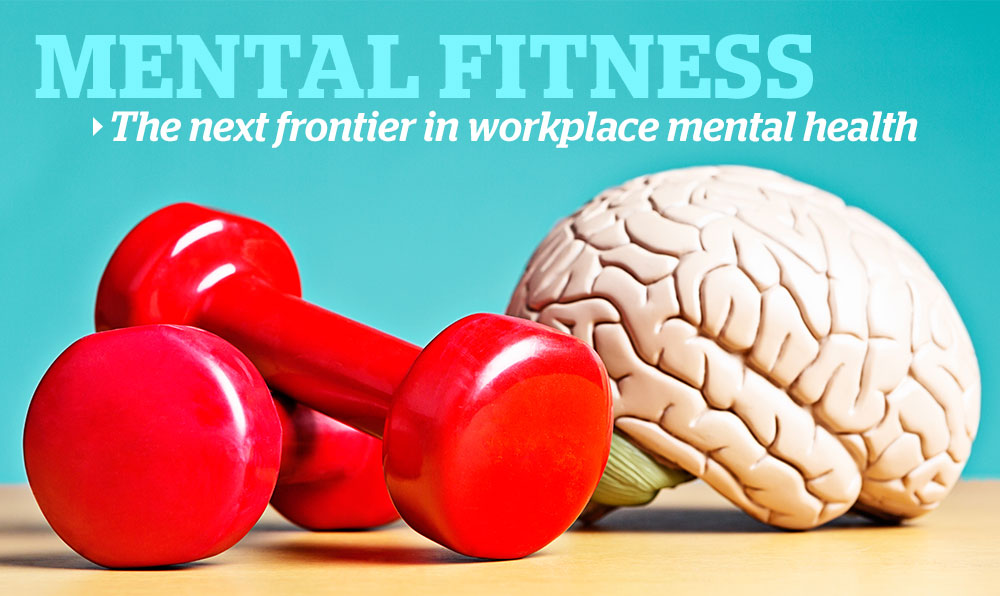

Columns/Blogs
Features
Health & Safety
Mental Health
Introducing the algorithm for mental health
By Bill Howatt

EDITOR’S NOTE: ‘Mental Fitness: The next frontier in workplace mental health’ is a weekly series, in partnership with Dr. Bill Howatt of Howatt HR Consulting in Ottawa. This series takes a deeper look at mental fitness — an approach to prevent mental harm and promote mental health.
It is critically important when thinking about mental health to understand that it is not static.
Much like the weather, it can change based on emotions that influence mood and a person’s outlook on the world.
Mental health is personal, meaning two people in the same situation can have different outlooks on what is happening.
Advertisement
Each day, the average person has tens of thousands of thoughts, many of which are automatic; they just pop into their head. When these thoughts are negative and a person believes they are true, this can influence their thinking, emotions, and behaviours.
Mental fitness is a preventive approach for a person to prepare themselves to manage both the good and challenging times.
One constant for all employees is there will be personal and professional stress; there is no escaping this reality. How well they manage themselves under stress matters.
Three core ways employees cope are:
- Prosocial coping skills — doing healthy and helpful things under pressure. These behaviours can also be done for prevention and building resiliency in preparation for challenging times.
- At-risk coping skills — engaging in feel-good activities to influence unwanted emotions and to feel better. Many eat to feel better when they feel stress.
- Help-seeking behaviour — asking for help and knowing where to get it.
Knowing the algorithm for mental health can position employees and employers to support workers to engage in prosocial coping skills, and leaders to be clear on how they can support employees and remove emotional drains.
Positively impacting mental health
In the first article of this series, “COVID collateral damage: Why mental fitness matters now, more than ever,” the concept of prevention versus support was explored as to what employers can do to impact employees’ mental health.
The goal was to introduce the concept of mental fitness and to get the reader thinking about the algorithm for mental health.
Before introducing this algorithm, pause and think about the algorithm for physical health.
We know that if we engage in exercise and a healthy diet, get enough sleep and pay attention to lifestyle choices, we can positively impact our physical health.
It is important to anchor this point. You cannot get physically healthy by thinking about it; you must do something.
Mental health is no different. But employers can play an important role in helping employees build their resiliency and supporting their mental health.
Employers are slowly learning that promoting and supporting mental health is not therapy or getting into their employees’ personal lives.
It is simply providing them the knowledge, skills and opportunity to positively impact their mental health and to reduce mental harms. That is not only good for the employer’s results but also employees’ quality of life and workplace experience.
COVID collateral damage: Why mental fitness matters now, more than ever
Four pillars of mental health
In my book, Stop Hiding and Start Living, I define mental health as having four pillars:
- Physical health — These are exercise, diet, sleep and lifestyle choices.
- Mental fitness — This includes prosocial coping skills that are healthy and charge one’s battery. There are literally hundreds of microskills and activities a person can engage in that are good for their health. Spending time with my English bulldog (pet therapy) is one of my best activities.
- Social connections — People need people to be fulfilled. Having safe and meaningful connections in the workplace can make an employee feel included and welcomed. They can also be a resource and advocate.
- Environmental supports — This centres on what employers can do to support employees and society. Maximizing mental health requires employees to have access to psychological health and medical resources, stable employment and financial health. Employers can commit to creating a psychologically safe workplace, having psychologically safe leaders and providing programs and opportunities for employees to get access to mental health prevention and support programs.
Evaluate your mental fitness initiatives
Too many employers do not have a mental fitness strategy.
If they did, they might find their employees would be better able to manage the wear and tear of COVID-19 as well as the demands of life at home and work.
Getting on an exercise bike once seldom does anything for physical health. Neither does taking one resiliency course teach employees what they can do for their mental health.
Random acts of wellness like walking challenges, a three-hour course, a wellness app or a structured program may appear to be helpful, but seldom have an impact because expectations are not aligned with how humans learn and grow.
To be physically healthy, a person needs to adopt a lifestyle focused on actions they can control. Mental fitness is no different; it requires a strategy and a plan to adopt it into one’s daily life. There are no magic solutions or shortcuts.
What kinds of prevention programs do you have in place to support employees day-to-day, week-to-week, month-to-month, and year-to-year?
Like physical health, there is no endpoint where a person can say they have graduated and there is nothing more to be done for mental fitness.
Not understanding the business case for a mental fitness strategy can stop some employers.
 Dr. Bill Howatt is the Ottawa-based president of Howatt HR Consulting and the former Chief of Research and Workforce Productivity at The Conference Board of Canada.
Dr. Bill Howatt is the Ottawa-based president of Howatt HR Consulting and the former Chief of Research and Workforce Productivity at The Conference Board of Canada.
The next article in this series will provide ideas for building a business case for a mental fitness strategy. If there is a particular microskill or topic you would like to see Dr. Howatt write on that supports employees’ mental health in the workplace please send your ask to Talent Canada editor Marcel Vander Wier.
Print this page